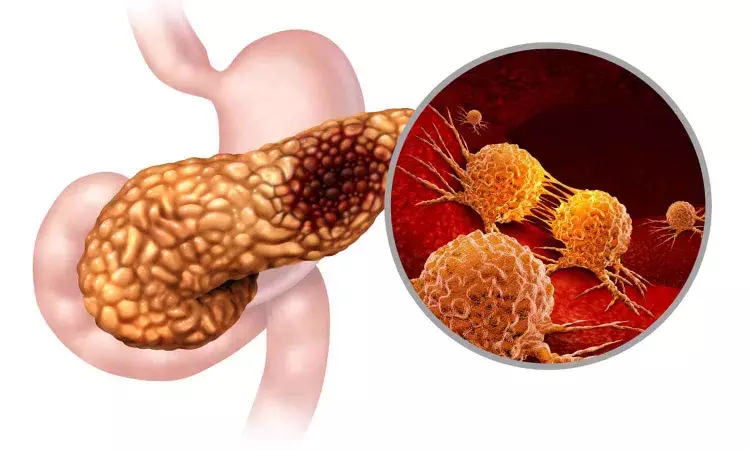- Home
- Medical news & Guidelines
- Anesthesiology
- Cardiology and CTVS
- Critical Care
- Dentistry
- Dermatology
- Diabetes and Endocrinology
- ENT
- Gastroenterology
- Medicine
- Nephrology
- Neurology
- Obstretics-Gynaecology
- Oncology
- Ophthalmology
- Orthopaedics
- Pediatrics-Neonatology
- Psychiatry
- Pulmonology
- Radiology
- Surgery
- Urology
- Laboratory Medicine
- Diet
- Nursing
- Paramedical
- Physiotherapy
- Health news
- Fact Check
- Bone Health Fact Check
- Brain Health Fact Check
- Cancer Related Fact Check
- Child Care Fact Check
- Dental and oral health fact check
- Diabetes and metabolic health fact check
- Diet and Nutrition Fact Check
- Eye and ENT Care Fact Check
- Fitness fact check
- Gut health fact check
- Heart health fact check
- Kidney health fact check
- Medical education fact check
- Men's health fact check
- Respiratory fact check
- Skin and hair care fact check
- Vaccine and Immunization fact check
- Women's health fact check
- AYUSH
- State News
- Andaman and Nicobar Islands
- Andhra Pradesh
- Arunachal Pradesh
- Assam
- Bihar
- Chandigarh
- Chattisgarh
- Dadra and Nagar Haveli
- Daman and Diu
- Delhi
- Goa
- Gujarat
- Haryana
- Himachal Pradesh
- Jammu & Kashmir
- Jharkhand
- Karnataka
- Kerala
- Ladakh
- Lakshadweep
- Madhya Pradesh
- Maharashtra
- Manipur
- Meghalaya
- Mizoram
- Nagaland
- Odisha
- Puducherry
- Punjab
- Rajasthan
- Sikkim
- Tamil Nadu
- Telangana
- Tripura
- Uttar Pradesh
- Uttrakhand
- West Bengal
- Medical Education
- Industry
Pancreatic enzyme replacement therapy may cut risk of acute Pancreatitis in kids with acute recurrent pancreatitis: Study

A recent study discovered that pancreatic enzyme replacement therapy (PERT) may significantly reduce the frequency of acute pancreatitis (AP) episodes in children who were diagnosed with acute recurrent pancreatitis (ARP) or chronic pancreatitis (CP) and still have sufficient pancreatic function. The findings of this study published in the American Journal of Gastroenterology offer new hope for managing the painful episodes and high hospitalization rates.
Acute pancreatitis represents a major challenge in pediatric gastroenterology due to its debilitating pain and potential to progress into chronic illness that necessitates frequent hospital interventions. Traditionally, no preventative treatments for AP episodes have been available by making the management of ARP and CP particularly difficult.
The study encompassed a total of 356 children who retained adequate pancreatic function with a significant majority, 270 participants suffered from ARP. Only 60 children received PERT as part of their treatment regimen. The study noted that after starting PERT, 42% of these children did not experience further AP episodes during the average follow-up period of 2.1 years.
The findings of this research unveils the effectiveness of PERT in reducing the annual incidence rate of AP episodes. Before initiating PERT, the mean annual rate of AP episodes stood at 3.14 per patient. This rate dramatically decreased to just 0.71 after the treatment by marking a significant improvement in managing the condition.
Genetic factors also played a role in the success of this therapy. The outcomes highlighted that children with a SPINK1 gene mutation and those who were diagnosed with ARP showed a reduced likelihood of experiencing AP episodes post-PERT initiation. This genetic insight points to a potential tailored approach in treating pancreatitis based on individual genetic profiles.
These results strongly support the initiation of a clinical trial to verify the efficacy of PERT in enhancing the clinical outcomes for children with these pancreatic conditions. The study advocates for such trials to answer the need of establishing concrete evidence to integrate PERT into standard treatment protocols.
Reference:
Freeman, A. J., Ng, K., Wang, F., Abu-El-Haija, M. A., Chugh, A., Cress, G. A., Fishman, D. S., Gariepy, C. E., Giefer, M. J., Goday, P., Gonska, T. Y., Grover, A. S., Lindblad, D., Liu, Q. Y., Maqbool, A., Mark, J. A., McFerron, B. A., Mehta, M. S., … Morinville, V. D. (2024). Pancreatic Enzyme Use Reduces Pancreatitis Frequency in Children With Acute Recurrent or Chronic Pancreatitis: A Report From INSPPIRE. In American Journal of Gastroenterology. Ovid Technologies (Wolters Kluwer Health). https://doi.org/10.14309/ajg.0000000000002772
Neuroscience Masters graduate
Jacinthlyn Sylvia, a Neuroscience Master's graduate from Chennai has worked extensively in deciphering the neurobiology of cognition and motor control in aging. She also has spread-out exposure to Neurosurgery from her Bachelor’s. She is currently involved in active Neuro-Oncology research. She is an upcoming neuroscientist with a fiery passion for writing. Her news cover at Medical Dialogues feature recent discoveries and updates from the healthcare and biomedical research fields. She can be reached at editorial@medicaldialogues.in
Dr Kamal Kant Kohli-MBBS, DTCD- a chest specialist with more than 30 years of practice and a flair for writing clinical articles, Dr Kamal Kant Kohli joined Medical Dialogues as a Chief Editor of Medical News. Besides writing articles, as an editor, he proofreads and verifies all the medical content published on Medical Dialogues including those coming from journals, studies,medical conferences,guidelines etc. Email: drkohli@medicaldialogues.in. Contact no. 011-43720751


